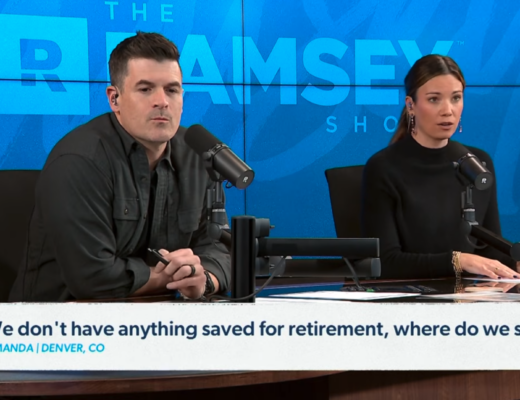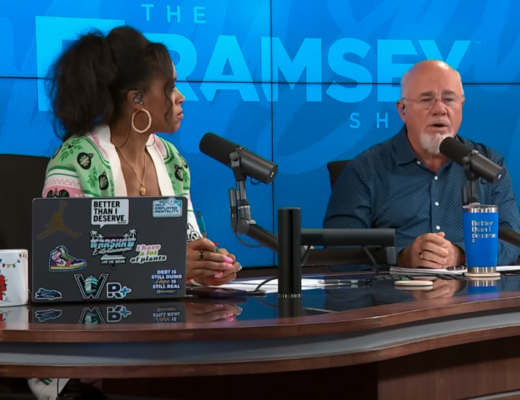I recently came across a troubling situation on The Ramsey Show that highlights the intersection of family, ethics, and financial integrity. A caller was facing a serious moral dilemma that could potentially derail his upcoming marriage proposal.
The situation? His girlfriend’s father had transferred family investments to her name so her sister could qualify for larger financial aid packages. Meanwhile, the father was pushing for a prenuptial agreement, unaware that the caller knew about these questionable asset transfers.
This scenario struck me as a perfect example of how financial dishonesty can create ripple effects that damage relationships and futures. Dave Ramsey didn’t mince words in his response, and I think his perspective deserves deeper examination.
The Ethics of Financial Aid Manipulation
What the girlfriend’s family did was technically manipulate the system. Pell Grants and other financial aid programs exist specifically to help students from lower-income backgrounds afford college. By artificially appearing to have fewer assets, the family was essentially taking resources meant for truly disadvantaged students.
As Dave pointed out, this behavior is “ethically horrendous” even if it might exist in some legal gray area. The father’s willingness to misrepresent their financial situation to gain benefits intended for others reveals a concerning value system.
This raises important questions about character and integrity that extend far beyond this single situation:
- If someone believes it’s acceptable to manipulate financial aid systems, what other ethical lines might they cross?
- How might these values affect other financial decisions in a marriage?
- Can you build a healthy financial partnership with someone who has different ethical standards?
These questions aren’t just theoretical—they have real implications for relationships and financial futures.
The Relationship Crossroads
What makes this situation particularly difficult is that the girlfriend is caught between her father’s influence and her relationship. As one of the Ramsey Show hosts noted, she faces a painful choice: continue following her father’s questionable guidance or begin making independent ethical decisions with her future husband.
The caller’s discomfort is completely valid. By marrying and combining finances, he would be indirectly participating in something that violates his personal ethics. No prenuptial agreement can solve this fundamental values mismatch.
Dave offered practical advice that I think applies to many ethical dilemmas in relationships:
- Don’t attack the other person’s family or make accusations
- Frame concerns in terms of personal comfort and values
- Focus on building an independent household with shared values
The concept of “leaving and cleaving”—establishing an independent household separate from parents’ influence—becomes especially important when ethical differences exist between families.
The Long-Term View
What struck me most was Dave’s insight about the long-term implications. If the caller simply caves on this issue to avoid conflict, the probability of a lasting marriage drops dramatically. This isn’t just about one disagreement—it’s about fundamental integrity and values alignment.
When someone demonstrates they believe it’s acceptable to bend rules for personal gain, that reveals character. And character issues don’t typically improve with time; they tend to manifest in other areas of life.
The caller faces a difficult choice. He can have an honest conversation with his girlfriend about his concerns, hoping she’ll recognize the ethical problems and choose to address them. Or he might need to reconsider whether they share enough core values to build a life together.
Either way, compromising his own ethics to maintain peace would likely lead to bigger problems down the road. As Dave put it, this situation is “a revelation of character” that can’t be ignored.
Financial ethics might not seem romantic, but they form the foundation of trust in a relationship. When we commit to someone, we’re not just joining our lives but also aligning our values. Sometimes the most loving thing we can do is to hold firm to our principles, even when it’s uncomfortable.
The path forward isn’t easy, but facing these difficult conversations before marriage is far better than discovering irreconcilable ethical differences after saying “I do.”
Frequently Asked Questions
Q: Is manipulating assets to qualify for financial aid actually illegal?
While Dave Ramsey didn’t definitively state whether this specific situation constituted fraud, he emphasized it was morally wrong at minimum. Financial aid fraud can occur when someone intentionally misrepresents information to qualify for aid they wouldn’t otherwise receive. The legality depends on specific circumstances, but even if something falls into a gray area legally, the ethical problems remain.
Q: How should someone approach this kind of conversation with their partner?
When discussing ethical concerns about a partner’s family, focus on your own values and comfort level rather than attacking their family members. Express how the situation makes you feel and why it conflicts with your personal standards. Emphasize your desire to build a relationship based on shared values and transparency, without placing blame or making accusations.
Q: Would a prenuptial agreement solve this problem?
As Dave pointed out, “You can’t prenup away a lack of ethics.” While a prenuptial agreement might provide some legal protection, it doesn’t address the underlying ethical conflict or the potential impact on trust within the relationship. Fundamental value differences require direct conversation and resolution, not just legal documentation.
Q: What if my partner doesn’t see anything wrong with their family’s financial choices?
This represents a significant values mismatch that deserves serious consideration before marriage. If your partner doesn’t recognize ethical problems that concern you deeply, you may face ongoing conflicts about financial decisions throughout your relationship. Consider whether you can build a life with someone whose moral compass differs from yours on important matters, and whether these differences might affect other aspects of your relationship.







